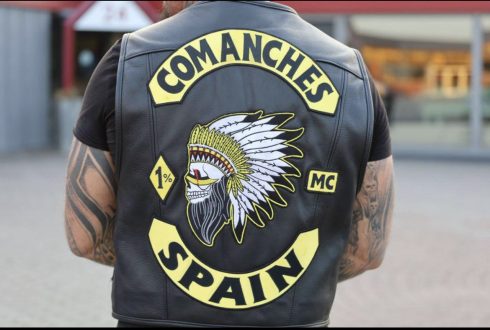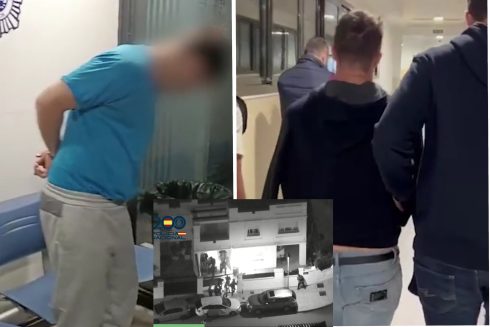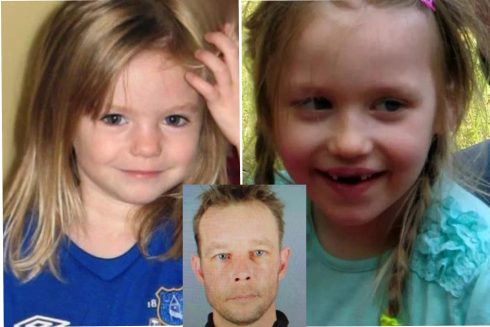A shiver runs down the backbone of the Costa communities as Tony King goes back on trial and back into the headlines
THE British man convicted of the rape and murder of a Spanish teenager in 2003 is back in court in Málaga accused of a similar crime in 1999. Tony King is already serving a 36 year prison sentence for the killing of Sonia Carabantes and the attempted rape of a young woman in Benalmádena.
Originally, the Spanish woman Dolores Vázquez was convicted of the 1999 murder of Rocio Wanninkhof but the killing of Sonia in 2003 brought DNA evidence against King into the investigation and Vázquez was released.
King was revealed to be Tony Bromwich, dubbed “The Holloway Strangler” by the British press after the series of sex attacks he carried out in North London by throttling his victims from behind. He served ten years in jail in Britain before moving to freedom in southern Spain. UK police continue to investigate his connection to a number of unsolved crimes in that country.
The proceedings on the first day of the trial opened with the words of the accused: “This judge is a criminal, this prosecutor is a criminal, and the Civil Guard biologists are criminals. These are not insults, this is the truth.” The defiant Tony King was then expelled from the court room and the case was adjourned.
Over subsequent days the court called a succession of witnesses to take the stand, including the head of the Guardia Civil who admitted that there “could have been errors” in the original investigation against Vázquez. The court also heard how the cigarette end found at the scene of the crime contained DNA evidence which was not identified until King was arrested for the murder of Sonia Carabantes in 2003.
The jury heard from King’s ex-wife Cecilia Matilde Pantoja, who testified that her former husband “could be” the killer of Rocio Wanninkhof. She expressed how her husband’s behaviour had been very odd on the night of Rocio’s murder, how he had showered and then thrown away the clothes he had worn that evening.
The court heard how King kept industrial strength black sacks at home, the same type that were used to dispose of the corpse, that he smoked Royal Crown, the brand of cigarette found at the scene of the girl’s disappearance and that he kept offensive weapons at home.
Cecilia Pantoja expressed how she failed to report her grave suspicions back in 1999 due to a lack of solid evidence. However, when a friend saw archive footage of her husband on a crime program on television she telephoned police in England who confirmed her husband’s criminal past but not his history as a sexual aggressor.
It was only after Sonia Caravantes was murdered in 2003 that Pantoja went to the police to detail her suspicions.
The sixth day of the trial however, saw the focus return to the original accused, Dolores Vázquez, who spent 17 months in prison for the teenager’s murder.
Josefa Hornos, the victim’s aunt, told how Rocio was terrified of Dolores, who was allegedly violent towards the girl. José María Muñoz Caparrós, the magistrate presiding over the trial, had previously prohibited the name of the former accused from being mentioned in the new trial but did not make attempts to halt the testimony of Josefa Hornos. When asked about the role of Tony King in the crime, Hornos expressed his belief that King and Vázquez killed Rocio together.
A third character, Robert Graham, is being hunted by police in connection with the murder. Graham, a friend of King’s, may hold vital evidence about the case but has disappeared from the area.
King claims that Vázquez and Graham killed Rocio together in his presence but that he was under the influence of drugs and hypnotism at the time. The victim’s mother, Alicia Hornos, said she also believed Vázquez and Graham were involved in the crime.
King has been behind bars since September 2003 and faces a further sentence of 26 years for the Rocio case. However, the prosecution is asking for a further 20 years of imprisonment for the violent killer.
The British communities living in Málaga have found the King case a divisive element between the ex-pats and the locals. Back in 2003 when King was arrested, the community in Alhaurin el Grande, where King lived, was said to be in shock. Parents even kept their children away from school for fear of tensions erupting, according to a BBC report which quotes a local man as saying: “We welcome these people to our country and they kill our children.”





